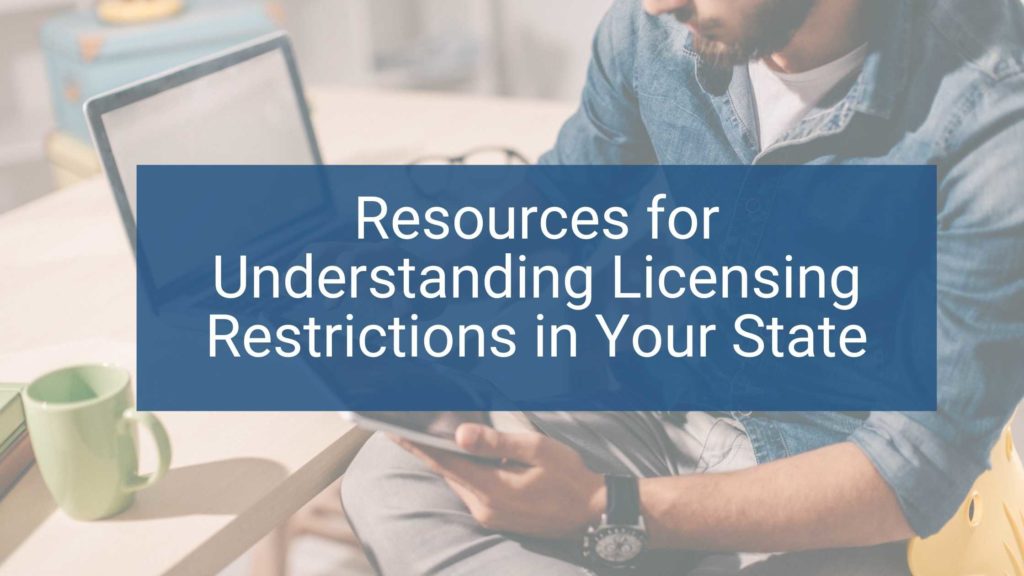Licensed practitioners are not alone in helping patients better themselves. Non-licensed practitioners have been and continue to be a growing source of information and support for those who need it. As a non-licensed practitioner, you want to help guide clients to wellness while making sure you follow the regulations put in place to avoid legal repercussions. We’ll look at some of the dos and don’ts based on common regulations and resources you can use to familiarize yourself with your state’s laws. Let’s start by defining a non-licensed practitioner.
What is a non-licensed practitioner?
A non-licensed practitioner is not any single type of practitioner. Instead, they fall under a broad range of practitioners who practice complementary and alternative medicine (CAM). (1) 12% of children and 38% of adults in the U.S utilize some form of CAM. (2) Non-licensed CAM practitioners may include those in:
- Naturopathy
- Homeopathy
- Chiropractic Therapy
- Acupuncture
- Nutritional Therapy
- Health & Wellness Coaches
Some CAM practitioners, like chiropractors, are required to obtain licensure to practice in every state and the District of Columbia. (3) We will focus specifically on CAM practitioners not required to be licensed, along with the restrictions placed on them.
The Do’s and Don’ts of Unlicensed Practice
Don’t Do It!
- Go outside of your scope of training – For example, if you have experience or training in nutritional therapy, you should not discuss medication. Medication decisions should always be between the patient and a licensed provider.
- Make False Claims – Without reputable scientific evidence, you cannot tell a client that a program or product will diagnose, treat, or cure any illness.
- Diagnose or engage in the practice of psychology or medicine. Instead, you can refer your client to a licensed professional, such as a psychiatrist or medical doctor when necessary.
- Discriminate – non-discriminatory standards of practice should be put in place.
- Forget to have disclaimers on your websites, media, advertisements, or anywhere you discuss your practice. You may also want to have an attorney look over your website before publishing.
You can do it!
- Be clear about your scope of practice – When positioning yourself in an area of practice, be sure to be honest about your training, qualifications, education, and experience. If you are a wellness coach, don’t refer to yourself as a doctor.
- Invest in liability insurance – If you are operating as an independent contractor, you can find liability insurance through most commercial insurance agencies.
- Direct your clients to reputable sources that offer more information about healthy living.
- Utilize disclosure and informed consent documents when working with a client. Be sure that the client understands and signs these documents before you begin coaching or educating.
Valuable Resources for Unlicensed practitioners
- The national center for complementary and alternative medicine (4) – for everything CAM-related
- The Georgetown law library (5) – Here, you will find a fantastic research guide on CAM legislation
- The American Nutrition Association (6) – You can use their interactive map to learn about state-by-state Regulation of Nutrition Practice.
- The American Naturopathic Certification Board Website (7)– Will provide you with information on Naturopathic laws by state.
- The North American Society of Homeopaths (8) – gives specific directions to find homeopathy laws in each state.
As a non-licensed practitioner, it is essential to understand you cannot give medical advice or consult on treatment options. Instead, position yourself as a coach who works to support your client once they have a verified diagnosis and a treatment team in place.
Whether you are new to your area of non-licensed practice or you have been working in your profession for some time, knowing the laws around unlicensed practicing is vital to both keep your business up and running, as well as to care for your clients in the best way you can.
References
Einstein.yu.edu. Accessed August 6, 2021. http://emed.einstein.yu.edu/auth/pdf/138799.pdf
Types of complementary and alternative medicine. Hopkinsmedicine.org. Accessed August 6, 2021. https://www.hopkinsmedicine.org/health/wellness-and-prevention/types-of-complementary-and-alternative-medicine
Credentialing, licensing, and education. Nih.gov. Accessed August 6, 2021. https://www.nccih.nih.gov/health/credentialing-licensing-and-education
NCCIH. Nih.gov. Accessed August 6, 2021. https://www.nccih.nih.gov/
Krombach J. Guides: Complementary and alternative medicine research guide: Legislation. Published online 2015. Accessed August 6, 2021. https://guides.ll.georgetown.edu/c.php?g=316506&p=2114340
Advocate. Theana.org. Accessed August 6, 2021. https://theana.org/advocate
danfunsch. Naturopathy laws: State by state – American naturopathic certification board. Ancb.net. Published December 11, 2013. Accessed August 6, 2021. https://ancb.net/legislative-action-and-advocacy/naturopathy-laws-state-by-state/
“How to find the laws concerning homeopathy in your state” – NASH. Homeopathy.org. Published May 19, 2015. Accessed August 6, 2021. https://homeopathy.org/handout-for-joannas-talk/







